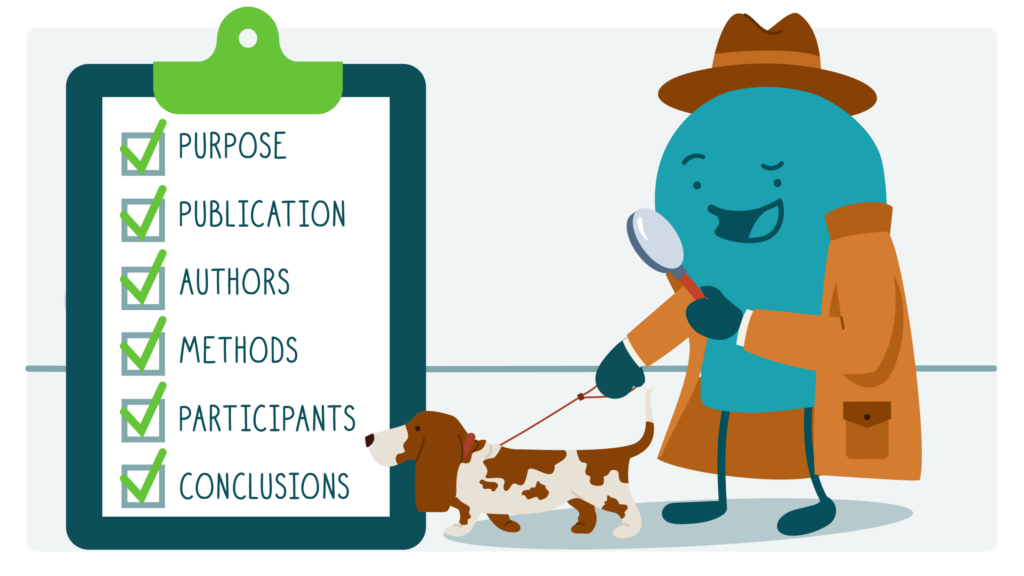
Communicating about the results of scientific research studies is a huge part of a health communicator’s job. After all, research is how we learn new things — like what’s causing diseases and what works to treat them (and what doesn’t). We’ve written in the past about how clear communication can make research better. But lately, one question that’s been on our minds here at We ❤️ Health Literacy HQ is this: How do we know whether we can trust research results?
First, the basics: Research studies come in many shapes. Experimental research involves signing up participants to try a new treatment, new device, or other intervention and studying its effects (think clinical trials). Observational research, on the other hand, studies the effects of what people are doing in their daily lives (without introducing an intervention). And systematic reviews look at all the research that already exists on a subject to draw new conclusions based on more data.
No matter the type of study, the same rule applies: not all research is created equal. So let’s talk about how to spot the good stuff — and avoid getting tripped up by pseudoscience.
Ask yourself: What’s the point?
Before diving into the methods, take a step back:
- Why did the researchers do this study?
- Who will benefit from the results?
- Who funded it — and could that funder have a stake in the results?
Pro tip: Always be on the lookout for hidden agendas. A soda company funding a study about the health benefits of soda? We’re side-eyeing that.
Check the publishing details.
Legit studies usually show up in peer-reviewed journals — meaning experts reviewed the study before it was published. If a study shows up on a random blog or was posted to an unreputable site without peer review? Probably best to keep scrolling.
Peek at the authors.
Yes, we’re encouraging a little light Googling. Ask:
- Do the authors have relevant credentials or experience in the topic area?
- Have they published other studies before?
- Are they transparent about any potential conflicts of interest? For example, it could be a conflict of interest if the authors have personal or financial ties to the group funding the study.
Dig into the methods.
Now for the nerdy part (which we ❤️):
- Is the study’s methodology clearly explained? Could another researcher follow their methods and get the same results?
- Did they use the right study design to answer their question?
- Did the researchers use appropriate statistical methods?
And while you’re at it: yes, it’s okay to double-check the citations. Fake or misused citations are a thing, unfortunately.
Who were the participants?
We always want to know:
- Was the study sample representative of the people the researchers are trying to serve? If a study only looked at, say, 10 people from 1 town — and it’s claiming results that apply to everyone everywhere — that’s a red flag.
- Did researchers clearly explain the purpose, risks, benefits, and right to withdrawal to the participants? (Psst: this is called informed consent!)
- Were the participants fairly compensated for their time?
Last but not least: the conclusions.
Even if everything else checks out, make sure the conclusions make sense:
- Are the results backed up by the data?
- Do the conclusions seem reasonable and realistic?
- Did they address possible bias?
Remember: if the results sound too good to be true or promise a miracle cure, it’s worth taking a closer look. And when in doubt? Ask a friendly neighborhood researcher (or your favorite health literacy team) for a second opinion.
The bottom line: Spot the difference between trustworthy research studies and ones that don’t quite hold up by asking a few key questions about a study’s purpose, authors, methods, and conclusions.
Copy/paste to share on social (and tag us!): Not all #research is created equal! CommunicateHealth shares tips to spot the difference between trustworthy research studies and ones that don’t quite hold up: https://communicatehealth.com/wehearthealthliteracy/what-makes-a-reliable-research-study/ #HealthCommunication #HealthLiteracy #HealthComm
Browse recent posts